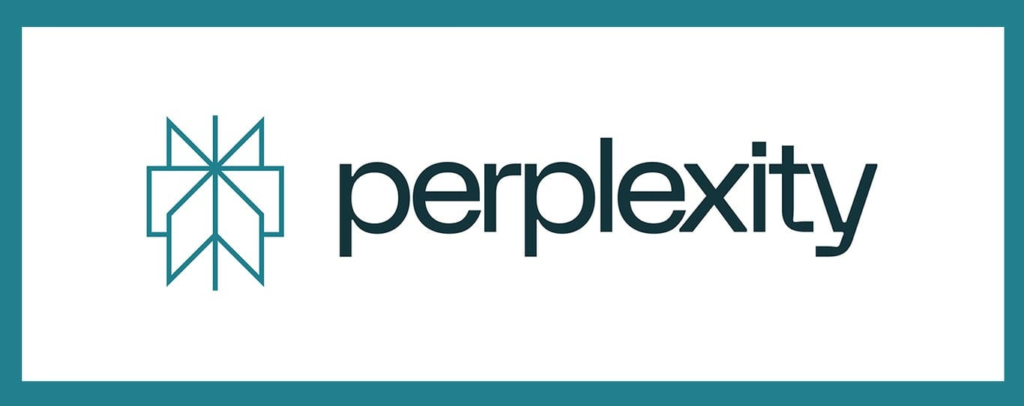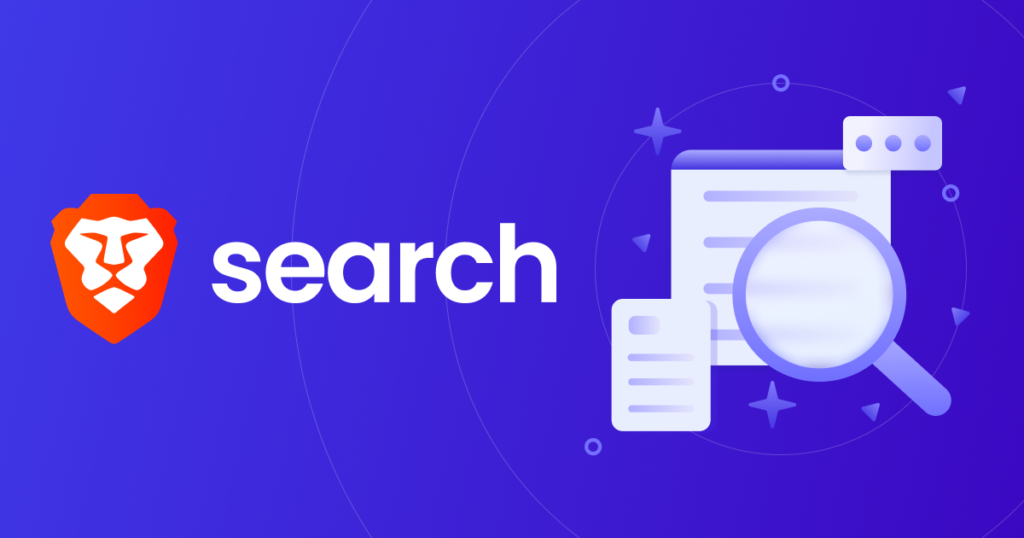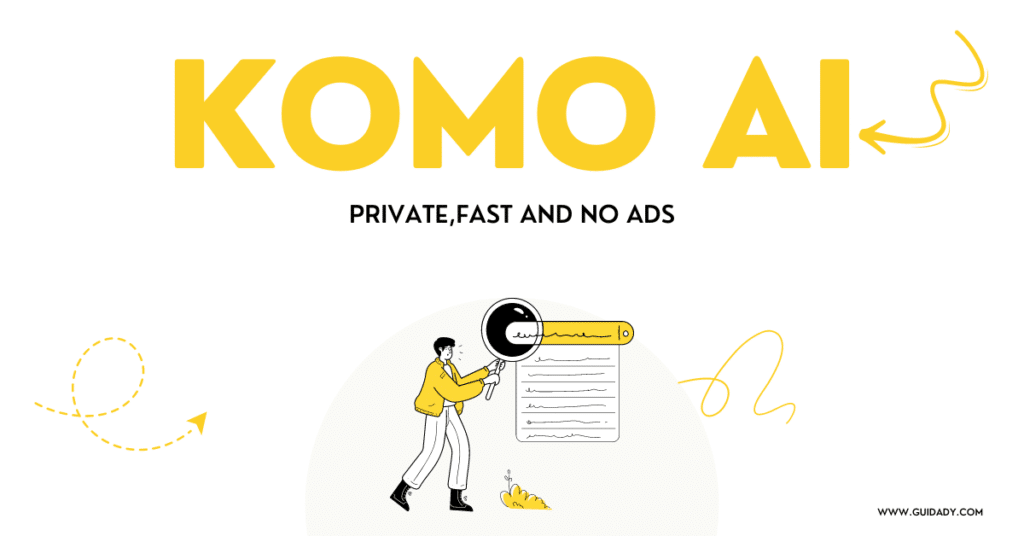Top 10 Best AI Search Engines to Explore in 2024

Traditional search engines often force users to scroll through endless pages of results to find relevant information. AI search engines now offer a welcome change by delivering precise, contextual answers to our questions.
The digital world has revolutionized dramatically in 2024. New AI-powered search engines have emerged among other well-known names like Google and Bing. These platforms go beyond simple keyword matching. They understand context, analyze information, and deliver complete answers directly.
The following piece covers the top 10 best AI search engines available today. You’ll learn about everything from Perplexity AI’s innovative approach to Google’s Search Generative Experience. This information will help you select the right search tool that matches your specific needs.
Understanding AI Search Engines
Search engines are going through a radical change. Statista reports about 68% of adults now ask generative AI questions, which shows how AI-powered search has become part of our daily routine.
How AI revolutionizes traditional search
Simple keyword matching is nowhere near enough anymore. Traditional search engines matched exact words, but AI search engines now use sophisticated technologies that understand both the context and intent behind our queries. These engines use natural language processing (NLP) to spot language patterns and link words together, which helps them learn the true meaning of what people say.
The system’s ability to learn continuously makes this change remarkable. These systems process huge amounts of data live and improve their search capabilities without human help. Each search query makes the system smarter and more precise.
Key features of Best AI Search Engines
AI search engines stand out because of these core features:
- Natural Language Understanding: They interpret conversational queries and understand context
- Semantic Search: These engines know the deeper meaning behind words instead of just matching keywords
- Real-time Learning: They adapt based on how users interact with them
- Multi-source Integration: They can analyze data from all types of sources, including social media and internal databases
Large language models represent one of the biggest breakthroughs. These models let engines give direct answers instead of just website links. This shows a fundamental change in how people interact with search technology.

Benefits for everyday users
Users get substantial advantages from this technology. Forbes Advisor shows that 64% of businesses think AI can improve customer relationships. These improvements come from several key benefits:
AI’s understanding of context and nuance gives us better search results. The technology predicts our intent and suggests options as we type. This guides us to more accurate and personalized results quickly.
Personalization stands out as a powerful feature. AI algorithms study our website behavior, including what products we view and what we search for, to customize results just for us. This creates an individual-specific experience that makes users feel understood.
The way information appears has also improved. Instead of reading multiple web pages, AI search engines now give brief summaries from different sources. This new way of delivering information makes searching more efficient.

Google’s AI Search Evolution
Google’s latest search features represent the biggest changes since the company started in the late 1990s. The tech giant has completely changed how users interact with search through its AI Overviews (formerly known as Search Generative Experience).
Search Generative Experience (SGE)
Google’s AI Overviews now reach more than a billion global users monthly. The system uses advanced AI to create interactive summaries that answer search queries directly. Users no longer need to visit multiple websites. The new features include:
- Clear summaries of search queries
- Options to ask follow-up questions
- Built-in image generation tools
- Automatic watermarks on AI-generated content
Integration with Google Workspace
AI goes beyond just search. Gemini brings major improvements to Google Workspace’s productivity. Customer service teams report a 30-35% reduction in message drafting time. Gemini proves valuable as:
- A research analyst who spots trends
- A sales associate creating custom proposals
- A helper managing emails
- A creative assistant building presentations
Impact on search results
The way search results appear has changed dramatically. The AI system creates brief summaries from trusted sources right in Google’s search interface. These changes brought several key effects:
Ad placement has changed. Only two ad positions appear above organic sections instead of four. Ads look more visual and detailed, especially for shopping-related searches.
Businesses and content creators see new traffic patterns. Early worries about fewer clicks have faded. Google’s data shows that AI overviews actually send more visitors to websites. New features like in-line links and prominent website displays in the right panel help drive this growth.
These changes stand out because of Google’s thoughtful approach. For YMYL (Your Money Your Life) questions, Google guides users to accurate information rather than quick answers. This shows a balance between new technology and responsible AI search practices.

Perplexity AI: The Rising Star
Perplexity AI has become a major player in the AI search world since 2022. Former employees of OpenAI, Meta, and other tech giants created this game-changing platform that’s now one of tech’s hottest products. The company recently secured USD 73.00 million in Series B funding backed by NVIDIA and Jeff Bezos.
Unique features and capabilities
Perplexity stands out with its steadfast dedication to fast, reliable information delivery. The platform’s live search capabilities scan websites, forums, social media, and news articles to give you the latest info. Its citation system makes it special – you can verify every piece of information through traceable sources right away.
Natural language processing helps the platform understand what we’re asking. The Copilot feature works like a helpful librarian and asks clarifying questions to better understand complex queries, which leads to more accurate results.
User experience analysis
Our tests show that Perplexity shines more as a research tool than a traditional search engine. The easy-to-use interface needs no training to get started. The platform excels because it:
- Gives contextual and conversational responses
- Creates concise summaries from multiple sources
- Suggests follow-up questions to dig deeper
The platform does have its limits. While it’s great for research-oriented queries, we’ve seen it give shorter and sometimes inconsistent answers compared to regular search engines.
Pro vs free version comparison
We’ve tested both versions to help you choose what’s right for you. The Pro version costs USD 20.00 monthly and comes with these upgrades:
- Advanced AI Models: GPT-4 Omni and Claude 3 access for better responses
- Daily Searches: 300 Pro searches daily instead of the free version’s limit
- File Analysis: You can analyze PDFs, CSVs, and images
The free version includes some great features:
- Basic search with citations
- Five Pro searches each day
- Standard AI model access
The free version keeps Perplexity’s core strength – cited, reliable information. This makes it perfect for casual users who want accurate search results.

Microsoft Bing and Copilot Integration
Microsoft’s integration of Copilot with Bing represents a breakthrough in AI search technology. More than 85% of Fortune 500 companies now use Microsoft’s AI solutions, showing how widely businesses have embraced this technology.
Copilot’s search capabilities
Copilot has changed how we approach keyword searching by making it more accessible. Users can ask complex questions and receive detailed answers based on current web data. The platform’s handling of multi-layered questions stands out. It combines information from multiple sources into one cohesive answer, eliminating the need for separate searches.
Key features that make Copilot unique:
- Up-to-the-minute data for quick task completion
- Verified answers with citations
- Multi-modal features powered by GPT-4
- Clean, ad-free interface for enterprise users
Integration with Microsoft 365
Microsoft 365’s combination with Copilot has reshaped our interaction with everyday productivity tools. Teams using Copilot report dramatic time savings. Coding tasks now take two hours instead of eight, while presentation creation time dropped from six hours to just 45 minutes.
The system makes use of Microsoft Graph to tap into:
- Email communications
- Document libraries
- Meeting transcripts
- Team conversations
Real-life performance
Results across industries have been impressive. Farm Credit Canada reports that 78% of users saved time on routine tasks, with 35% gaining over an hour weekly. Honeywell staff save 92 minutes each week, adding up to 74 hours yearly.
Benefits go beyond time savings. Organizations report these improvements:
- CDW found that 88% of users produced better-quality work
- Finastra staff cut task time by 20% to 50%
- Insight employees gained four extra hours weekly through data summarization
Security remains strong while delivering these efficiency gains. Data stays protected through Microsoft Entra accounts and follows company policies. This balance between security and usability makes it particularly appealing to enterprise users.
Developer teams see equally impressive results. Bancolombia boosted code generation by 30% and now averages 42 successful deployments daily. These numbers show how AI-powered search tools can improve both information finding and technical workflows.

ChatGPT’s Web Browsing Features
ChatGPT’s web browsing capabilities show remarkable progress in AI search technology. The feature has grown from a simple web crawler into a sophisticated search tool. It now combines conversational AI with up-to-the-minute information retrieval.
Browse with Bing integration.
ChatGPT’s merger with Bing’s search capabilities impresses us. The platform gives quick, current answers and links to relevant web sources. This integration stands out because it combines a natural language interface with current information like sports scores, news, and stock quotes.
The feature shows ChatGPT’s smart decisions about when to search the web based on our queries. Users can also trigger a search manually with the web search icon. Such flexibility ensures current and relevant information without extra web searches.
Search accuracy and limitations.
Our tests reveal both the strengths and limits of ChatGPT’s web browsing features. The search feature keeps ChatGPT’s speed and accuracy, but some points need attention:
- The system emphasizes and attributes information from trusted news sources better
- Users connect with original, quality content from websites of all types
- The platform doesn’t deal very well with multiple searches at once
We noticed occasional inconsistent search behavior as a key limitation. These problems often improve with careful prompting and clear instructions.
Premium features overview
We analyzed the differences between free and paid access to help users decide about the premium version. ChatGPT Plus subscribers (USD 20.00 monthly) get instant access to web browsing features. Free users will receive access in upcoming months.
Premium features include:
- Up-to-the-minute web search capabilities
- Merger with news and data providers
- Access to current information sources
- Better citation and source attribution
The platform excels at:
- Natural language query processing
- Understanding search intent in context
- Direct links to credible sources
- Combining multiple data sources
The search model uses a fine-tuned version of GPT-4 with new synthetic data generation techniques. This approach gives more accurate and relevant search results than traditional methods.
This feature stands out by creating a new way to interact with information. ChatGPT turns web content into conversations instead of just showing links. Users find information more naturally and can participate actively. This marks a big step forward in online information interaction, though users should verify important facts through multiple sources.
Specialized AI Search Platforms
Search engines have evolved beyond Google and Bing. We found several specialized platforms that serve specific user needs better. These new solutions change how professionals find and use information.

You.com for developers
Our team loves You.com’s approach to technical search. This “AI productivity platform” uses existing LLMs to deliver the results that developers need. Its sophisticated integration with multiple AI models, including GPT-4 and Claude 3.5 Sonnet, makes it stand out.
We’ve found the platform works great when you have:
- Custom agent creation for specific development tasks
- Integration with popular development tools
- Up-to-the-minute data integration for current coding solutions
You can choose between free and premium tiers. The Pro subscription (USD 180.00 per year) gives you access to advanced features like a 64K context window and file uploads up to 25MB per query.

Brave Search for privacy
Brave Search leads the pack among privacy-focused search engines with its AI integration. It protects user privacy without sacrificing search quality. The platform launched “Answer with AI” recently which gives summarized results while keeping strict privacy standards.
These features caught our attention:
- No user profiling or session tracking
- Independent search index free from Google or Bing dependencies
- Up-to-the-minute AI summaries with source citations
The technical side shows their dedication to privacy. They drop IP addresses before they reach their servers, which ensures complete user anonymity. This level of protection stands out given their sophisticated AI capabilities.

Komo for business research
Business professionals who need complete research capabilities will find Komo a game-changer. The platform understands and processes natural language queries better than others, which makes it perfect for business intelligence.
Komo shines in these areas:
- Market trend analysis and competitive intelligence
- Legal document research and case law exploration
- Academic paper analysis and dataset management
The Mind Map feature and flexible AI model selection set Komo apart. Users pick between models like GPT-4 mini for faster results or Claude 3.5 Sonnet for deeper reasoning. The platform has specialized personas, including Equity Researcher and Copy Writer, that tailor responses to specific professional needs.
Business users can choose from different subscription tiers. The Premium level (USD 24.00 per month, billed annually) includes advanced features like generative AI model selection and enhanced query sessions. Enterprise users appreciate its focus on data privacy and security.
Choosing the Right AI Search Engine
Your specific needs and priorities should guide your AI search engine selection. Our testing and analysis show several key factors that matter.
Comparing search accuracy
Search precision varies a lot among platforms. The recent SearchBench AI benchmark showed Andi’s accuracy with a score of 87%, which beat Google Gemini at 71% and OpenAI ChatGPT at 62%. Brand recognition alone shouldn’t determine your choice of an AI search engine.
Accuracy is often associated with the sophistication of underlying AI models. Platforms that offer multiple model choices deliver more precise results. Here’s how the top platforms stack up:
| Feature | Basic Search | Advanced Search | Expert Level |
|---|---|---|---|
| Context Understanding | Standard LLMs | GPT-4/Claude 3 | Custom Models |
| Source Verification | Single Source | Multi-Source | Cross-Reference |
| Result Format | Text Only | Multi-Modal | Interactive |
Privacy considerations
Privacy features have changed toward better data protection. Brave Search stands out with its self-hosted open-source LLMs and automatic deletion of search query information after each session. Users’ IP addresses and identifiable information get automatic protection.
Key privacy factors you should think about:
- Data retention policies
- IP address protection
- Query tracking practices
- Third-party data sharing
Cost-benefit analysis
ROI of AI search engines changes based on usage patterns. Pro versions typically offer 300 daily searches, access to advanced AI models like GPT-4 and Claude 3, unlimited file analysis, and API credits. Your investment decision should factor in several aspects.
Infrastructure Costs: AI adoption brings substantial infrastructure expenses. Hardware requirements, cloud computing resources, and storage needs affect optimal performance.
Development and Operational Costs: Costs go beyond subscription fees. You need to assess:
- Data preparation and labeling expenses
- Software tools and licensing
- Ongoing maintenance and updates
- Potential model retraining requirements
A thorough ROI assessment needs data about direct and indirect costs. This assessment should look at:
- Financial feasibility
- Strategic alignment with goals
- Impact across departments
- Long-term sustainability
Different platforms serve specific needs uniquely. Free versions often have strong features for individual users. Premium subscriptions add capabilities that make sense for business applications.
Start with a platform’s free tier to check if it meets your needs. This lets you assess the platform’s accuracy, privacy features, and potential ROI in your context before buying a subscription.
Future of AI Search Technology
The future of AI search technology promises to reshape how we interact with information. Recent developments and industry data reveal exciting trends that will define the next generation of AI search engines.
Upcoming features and state-of-the-art technology
AI search capabilities continue to advance rapidly. Recent data shows that 73% of US companies now use AI in their operations. The rise of multimodal capabilities will revolutionize information search and processing methods.
The future of AI search will feature:
- Advanced visual and voice recognition integration
- Real-time data processing with improved accuracy
- Customized search experiences powered by adaptive learning
- Cross-platform synchronization capabilities
Retrieval-augmented generation (RAG) stands out as one of the most promising developments. This technology has become an innovator in reducing hallucinations in AI responses. The reliability of AI search results should improve dramatically, making them more dependable for critical applications.
Industry trends
Companies are taking fresh approaches to AI search technology. Knowledge workers could become 30-40% more efficient by the end of 2024. This change extends beyond streamlined processes – it’s about reshaping how people find and use information.
Current vs Future Capabilities:
| Feature | Present | Future (2024-2025) |
|---|---|---|
| Search Accuracy | Simple Context Understanding | Multi-step Reasoning |
| Data Processing | Single Source | Cross-Platform Integration |
| User Interface | Text-Based | Multimodal Interaction |
| Response Time | Seconds | Real-Time |
Open-source AI’s growth deserves special attention. Small organizations can now access sophisticated AI models that were once out of reach. This accessibility should speed up innovation in AI search.
Potential risks for users
AI search engines will transform our daily lives by 2030. We’ll use them as personal assistants, tutors, career counselors, and even therapists. This development will fundamentally change our relationship with information technology.
Organizations face new challenges with “shadow AI”—unauthorized AI use within companies. This creates an urgent need for governance frameworks that support innovation while protecting privacy and security.
Customization possibilities are remarkable. About 54% of companies now use generative AI in some capacity. This quick adoption points to a future where AI search engines become specialized for specific industries.
Business leaders’ approach to data modernization has changed significantly. Research indicates that 44% plan to modernize their data in 2024 to make use of information from generative AI better. This shows a growing recognition of AI’s vital role in future operations.
Multimodal search capabilities continue to evolve. These advanced systems will analyze medical images alongside patient histories and genetic information to improve diagnostic accuracy. This example shows how AI search technology will change professional practices across industries.
AI search engines will become more proactive than reactive. Agentic AI shows signs of autonomy and proactivity. These systems will make reservations, plan trips, and connect to various services independently by 2024.
The path forward has its challenges. Organizations now enter the ‘trough of disillusionment’ in the Gartner Hype Cycle. This phase reveals complexities in implementing and scaling AI, especially in data quality management and system maintenance.
The future of AI search technology remains bright despite these challenges. Advanced capabilities like multi-step reasoning and planning, powered by custom models like Google’s Gemini, point to more accessible and powerful search tools. Early data shows users exploring more diverse information sources with AI-powered search features, which adds to the excitement about future possibilities.
Conclusion
AI search engines have transformed how we find information online. The largest longitudinal study shows platforms like Google’s AI Overviews, Perplexity, and Microsoft Copilot provide more accurate and contextual results than any traditional search engine that ever spread.
These tools go beyond just finding information – they actually understand it. Each platform brings something different to the table. Google delivers detailed answers. Perplexity excels at research. Microsoft Copilot makes business tasks easier. You.com and Brave Search serve the specific needs of developers and users who value privacy.
AI search technology is advancing quickly with exciting new features on the horizon. Live processing, multimodal capabilities, and better personalization will become common soon. The right AI search engine choice depends on what you need most – accuracy, privacy, or specific features.
These platforms are becoming vital tools we use every day. Success comes from knowing their strengths and limits. This helps us make use of their capabilities while taking a balanced approach to data privacy and security.
FAQs
- What is the premier search engine for 2024?
- According to Forbes Advisor Ratings, they provide a ranking of top search engines for 2024.
- Which free AI tool is considered the best in 2024?
- The Best Free AI Tools Comparison Chart offers insights into the leading free AI tools available in 2024.
- What are the leading image search engines for 2024?
- In 2024, the top reverse image search tools include Google Images, Lenso.ai, TinEye, Reverse Image Search by SmallSEOTools, Bing Image Match, ImageRaider, Pinterest Visual Search, and Yandex Images.
- Which AI technologies surpass ChatGPT in functionality?
- Some AI technologies that offer more specialized or enhanced functionalities compared to ChatGPT include ClickUp for AI-powered work management, Google Gemini for multimodal processing, Microsoft Copilot for AI-enhanced productivity in Microsoft Office, and Claude for creative, conversational text generation.
Checkout: Artificial Intelligence in Education: the Future of Teaching and Learning



One Comment